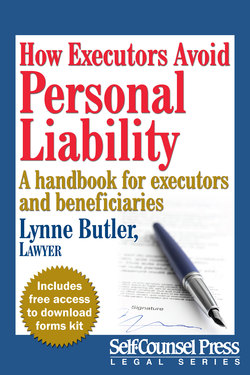Читать книгу How Executors Avoid Personal Liability - Lynne Butler - Страница 8
На сайте Литреса книга снята с продажи.
4. Common Law
ОглавлениеOther rights and obligations for executors and administrators are not always written down in a rule book anywhere. They have developed over the years from what we call the “common law.” This refers to a history or accumulation of cases that have been interpreted and decided by our courts (and before them, the courts of England). We rely on those cases as having set precedents, so that we can extrapolate the findings of those cases to our own situations. The reliance on precedent is intended to guide, interpret, and control the actions of executors, administrators, beneficiaries, creditors, and claimants.
Provincially, only Québec does not use the common-law system; it has its own legal system known as a civil-law system.
An example of a common-law rule that affects executors is the concept of the executor’s year. This concept means that unless there are difficulties or complexities in an estate, the executor should be able to finalize it and pay out the beneficiaries within a year. It sets a goal for the executors, and it also alerts the beneficiaries not to expect the job to be done overnight.
The fact that a rule arises from a common-law precedent and not a written statute (except in New Brunswick where the one-year rule is set out in the Devolution of Estates Act) does not change the fact that an executor must abide by it, and may face consequences if he or she does not do so.
